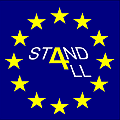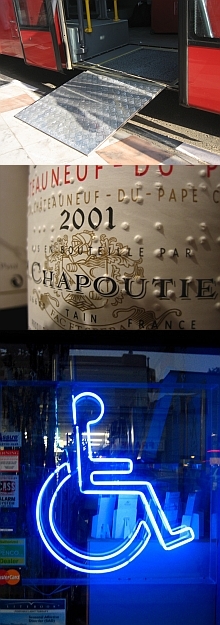Accessibility and Standardisation
People with disabilities have the same rights to contribute to society and economy as people without disabilities.
For this reason, equal access to goods and services by people with disabilities is essential
for their participation in society without discrimination.
Products and services need to be accessible, in other words,
individuals with disabilities can access and use them as effectively as people who don’t have disabilities
.
Standards can contribute to the accessible design of products and services in several ways,
for example, by defining accessibility requirements, by providing guidance on development or design methods, or by providing evaluation methodologies.
Note that we use the phrase “people with disabilities” in a very wide sense:
elderly persons also experience impairments but they do not necessarily consider themselves as people with disabilities.
Most standards for products and services have not addressed the needs of persons with disabilities. Moreover, organisations that represent people with disabilities and elderly users are rarely involved in standardisation, especially at a European level. For this reason, the Stand4All consortium developed two training courses:
- a course aimed at organisations that represent people with disabilities and elderly users, in order to increase their effective participation in the standardisation process; and
- another course aimed at members of standardisation committees in order to increase their awareness and knowledge of accessibility issues faced by persons with disabilities.
More information is available on the trainings page.
CEN/CENELEC Guide 6 is a document with guidance for standardisation committees on how to take into account the needs of people with disabilities when defining standards for products and services. This guide is used in several parts of the Stand4All training courses. An HTML version of Guide 6 is available elsewhere.
The Stand4All project started in January 2009 and ran until 30 March 2010.
This website is supported for under the European Community Programme for Employment and Social Solidarity (2007-2013). This programme is managed by the Directorate-General for Employment, social affairs and equal opportunities of the European Commission.
It was established to financially support the implementation of the objectives of the European Union in the employment and social affairs area, as set out in the Social Agenda, and thereby contribute to the achievement of the Lisbon Strategy goals in these fields.
The seven-year Programme targets all stakeholders who can help shape the development of appropriate and effective employment and social legislation and policies, across the EU-27, EFTA-EEA and EU candidate and pre-candidate countries.
The information contained in this publication does not necessarily reflect the position or opinion of the European Commission.

